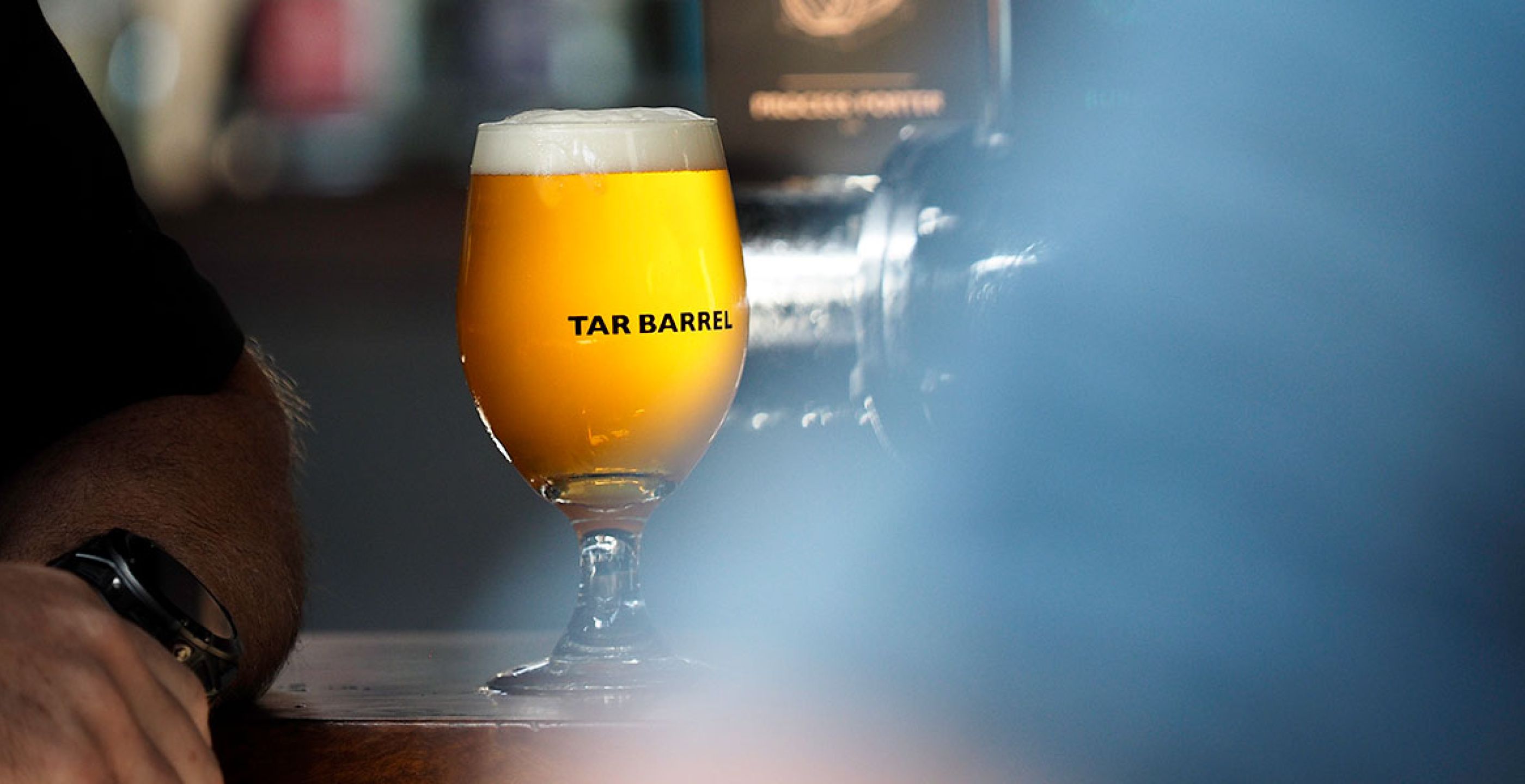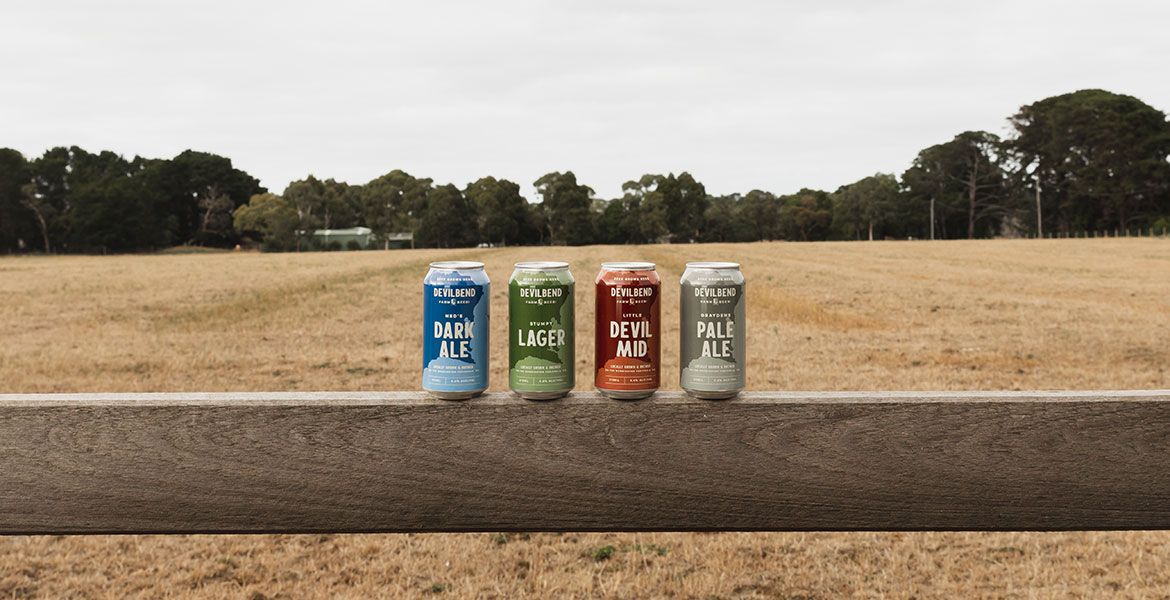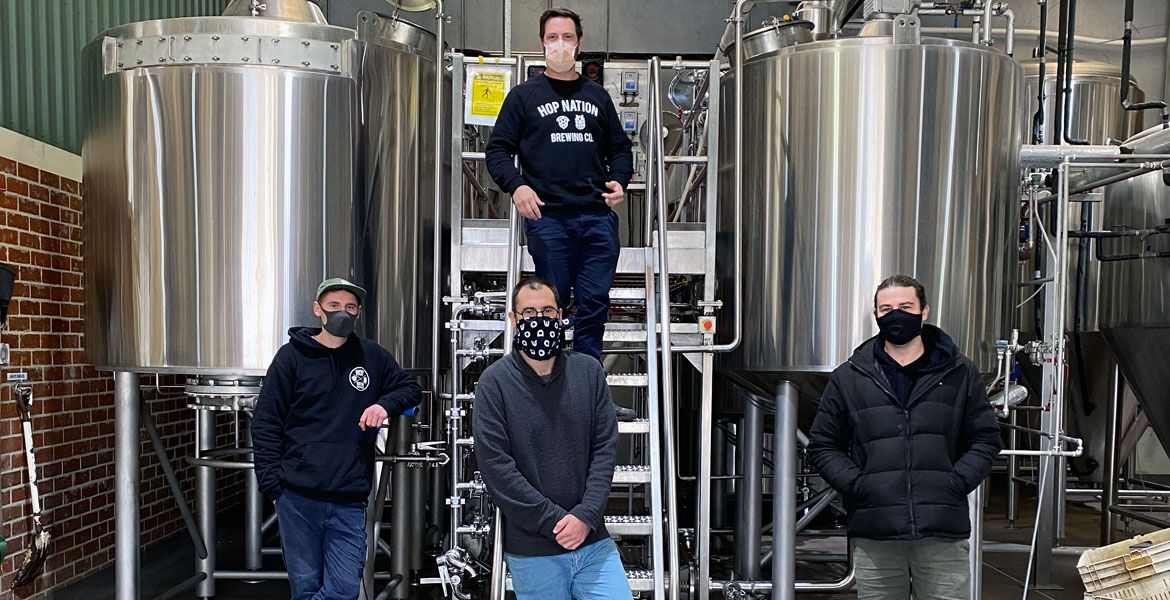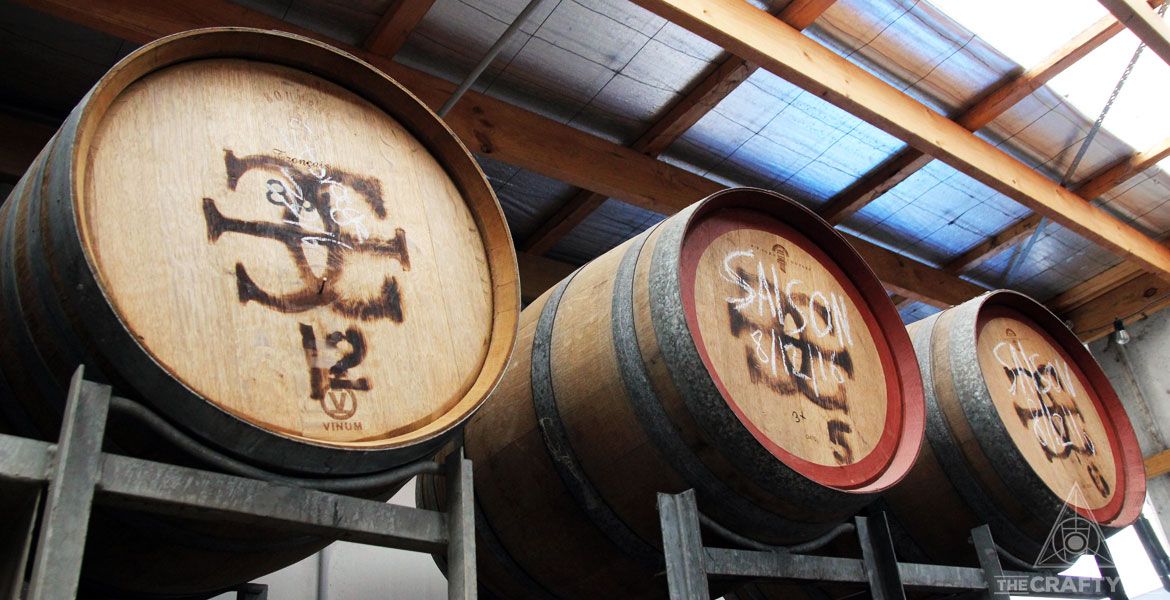They’ve been brewing beer at 72 Watt Road, Mornington, for more than a decade but there’s an air of change around the warehouse right now. This month saw Tar Barrel Brewery & Distillery, named after a road near the brewery, separate from Mornington Peninsula Brewery and Tribe – the brewery Tar Barrel's founder opened in 2010 and the business he sold it to in 2018.
It’s an uncoupling process that’s been in the works for three years – rather tough years too, thanks to COVID – and has seen Matt Bebe and head brewery Andrew Gow (better known as AG) continue to brew and pour beers under the Mornington Peninsula Brewery banner. And now the connection between his first and second brewing companies has ended, Matt says Tar Barrel’s connection to the Mornington Peninsula is set to go deeper.
“It's kind of like you starting off again,” he told The Crafty Pint. “We had our Tar Crew down with friends and family and there was a lot of nervous energy. I’m thankful for where I've come to from Mornington and Tribe, and really enjoyed the journey, but it's time to reset.”
Tar Barrel’s gin and vodka have been available for some time, with dark spirits due to follow early in 2023, while an American barbecue has been installed at the brewpub too. This month also sees them release their core range beers – made up of Corner Pale, Watt Lager, Burner IPA and Process Porter – but while they're now out in the world, they won’t be making it far.
“What we decided a long time ago is that Tar Barrel is going to be local,” Matt says. “For both beer and spirits – whether they'll be the whisky, gin, vodka – it's all going to be available either on the Mornington Peninsula, in our taproom, or on our website.”
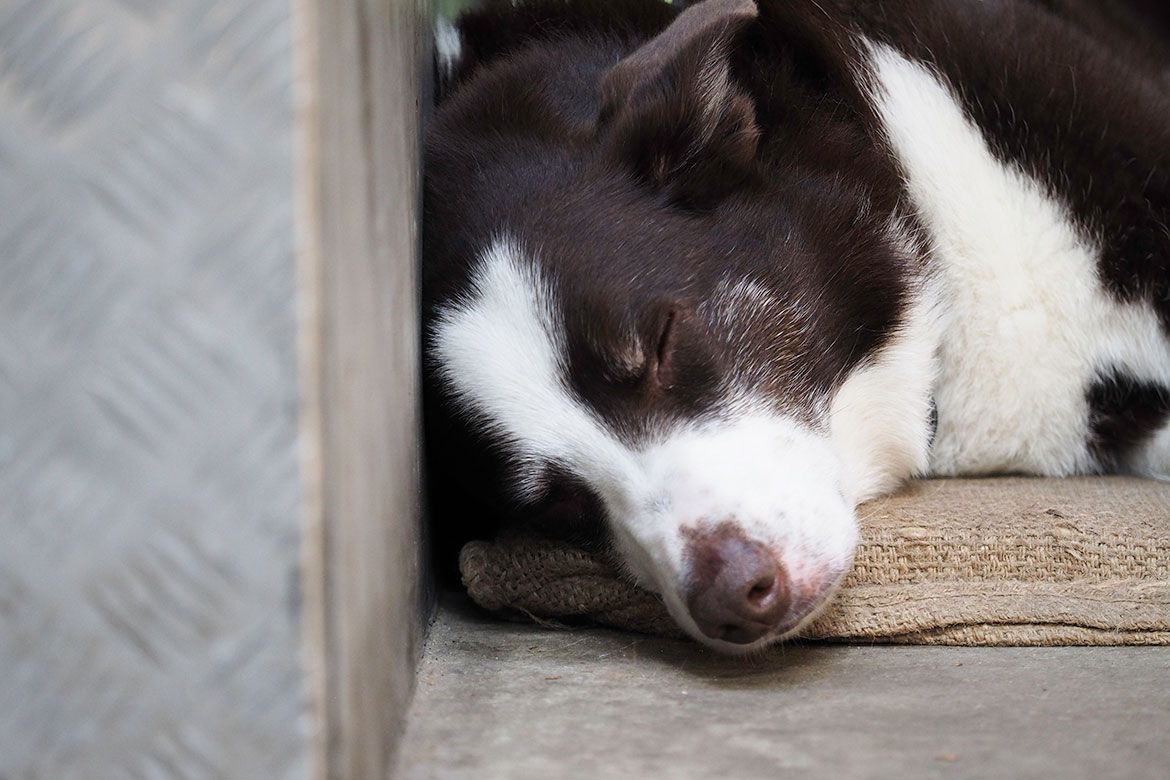
These Things I Know
Having sold the brewery he started with a group of mates and eager investors to Tribe in 2018, Matt’s story is a unique one. It’s seen him go from brewery owner, to running Mornington Peninsula Brewery as part of a larger business, then back to venue owner, brewery owner and now distiller too.
It’s a decade-long journey that Matt says has brought with it a lot of learnings, which will no doubt be of use to many others currently – or considering – navigating their way through the world of small-scale brewing.
Venues are key
In 2014, Mornington Peninsula Brewery opened their Latham Street production brewery around the corner from Watts Road (which is now Hop Nation’s Mornington home) and geared it entirely towards production.
“I've spoken to a lot of the shareholders about it," Matt says. "The next step should have been something like Latham Street but a venue as well.
“If we had our time again, what we should have done was actually bought a second site, put a bigger brewery in there, and made that the brewing hub, but also have it as a venue. I don’t think most places can survive without the venue and a food offering.”
Success can bring its own challenges
The need to continue expanding and investing more in capacity and the sales staff required to sell that additional beer is something of brewery owners can easily get caught up in, and is something that needs to be thought through carefully. When it comes to sales reps, Matt says they need to be selling a lot of beer just to cover their own wage and, even then, success brings its own issues.
“Then the salesperson gets a big account and you have to put a new canning line in. But to fund that you need more sales,” he says. “The whole thing becomes a Catch-22, but you should have stopped and asked what are you doing as a business owner?
“What happens is that you get caught up in this hole of wanting to make more money.”
As a result, at Tar Barrel, Matt says he’ll be the sole rep, a decision he believes has been welcomed by local bottleshops.
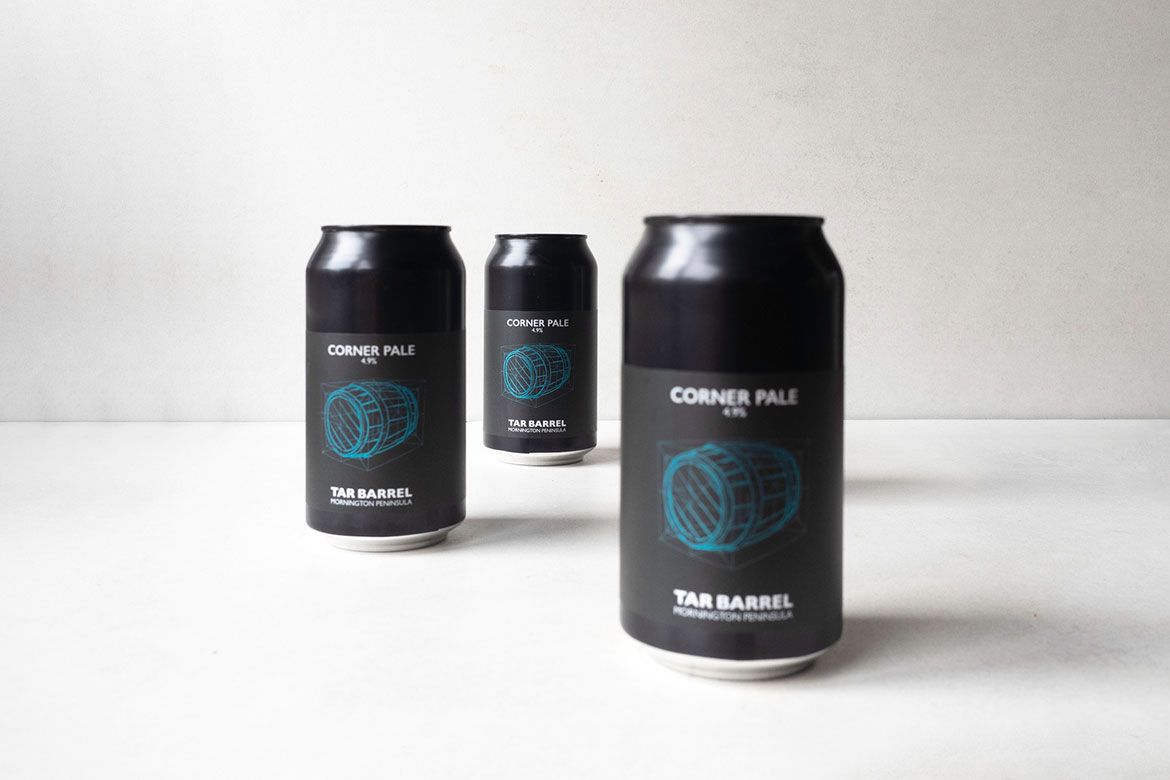
Believe in your brand
At present, the Tar Barrel team has no plans for promotional material, or to get involved with promotional pricing either.
“The only position that I want to be in is that if someone doesn’t want my beer then other people will want to buy it,” Matt says.
“I’m so past discounting – you can’t recover from price deterioration. Because there's a value to your brand, and if the value is seen as price only, then you don’t have a very good brand.”
Size is everything – but doesn't have to mean big
The difficulty in maintaining expansion has been a topic of focus over the past week in America, sparked by the owners of much-loved and highly-awarded The Lost Abbey revealing their plans to downsize. The California brewery said that, after 16 years, they would no longer chase growth.
Matt says he remembers being at the Craft Brewers Conference more than five years ago and learning even then about breweries struggling to find or maintain a foothold in new areas.
“It was the West Coast breweries that tried to set up over on the East Coast; they failed miserably,” he says.
While there’s long been a desire for people to engage with businesses locally, Matt believes COVID and the long Victorian lockdowns have only made that more true than even – and that it's essential for breweries today.
When talking about success, he's quick to point to the breweries on the Peninsula that haven’t necessarily made big waves elsewhere, but have found their own happy place in the world. In particular, he name checks the region's longest established brewery, Red Hill, which remains a popular tourist spot and is warmly regarded by locals.
“That’s a great environment and Dave and Karen just do what they do," he says. "And I think they should be admired since it’s great for them and a fantastic place to be.”
“The people who have remained true down here, like Red Hill Brewery and St Andrews Beach, have done very, very well. They play in a niche but there's enough for all of us.”
Matt says beyond creating a great place to visit, those breweries get the people they’re selling beer to because, ultimately, they are the market.
“It’s not just about understanding the market, but also the community that you're part of,” he says. “We hope that we are going to be woven into the fabric of Mornington Peninsula.”
“I think it’s okay to stay small and be local. And that way, people get who you are and why you do it.”
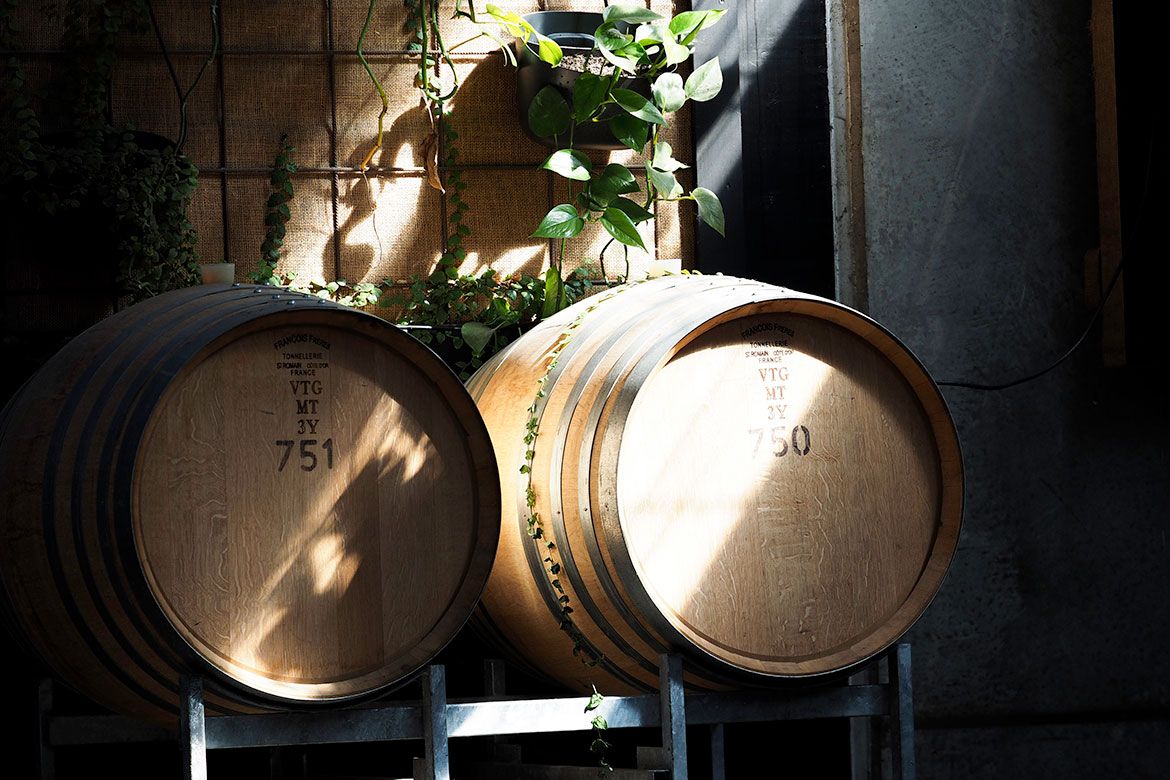
Be true to who you are
Matt says Tar Barrel have three key focuses beyond the triumvirate of beer, barbecue and spirits.
“There’s that authenticity that a lot of people looking for and that includes labelling: on our label, we talk about brewed and packaged at Tar Barrel.”
Have hitting capacity constraints at Latham Street, Mornington Peninsula Brewery moved some of its production to Tribe’s facility at Smeaton Grange. While drinkers might place an importance in knowing where and how a beer is made, Matt says it matters to the brewery team as well.
“It’s just a personal opinion, but I think there's a certain amount of love or passion that isn't involved when someone else is making your beer.”
Don't forget to have fun
Secondly, Matt talks about being able to have fun with the brand and make decisions on the fly.
“We talk about spirited, that whole playfulness of stories, why do we do something? Let's just have fun with it."
Experience counts
So much of what people get excited about in the wider craft beer industry today is the latest, shiniest and newest, whether that's breweries, styles or venues. Conversely, you often hear those who helped build the industry talk about how tough it can be to remain relevant in the fast-growing, ever-changing beer landscape. Yet Matt says his and AG’s experience is important too: they started working together 12 years ago, with AG’s professional brewing career dating back to 2000.
“We know what works, so let’s deliver on that and not build too big where it becomes unwieldy,” Matt says.
Having sold one brewery, selling this one certainly isn’t on Matt’s radar but, ultimately, if you are building a business, in almost every case it has to sell or close at some point. In the case of Tar Barrel, he says the brewery represents who they are: it’s small and the team is small too; there isn’t much to it; and he’d hope to sell to someone eager to keep it going in the manner it is now and for him to be able to stick around too.
“My offering would be that I'm happy for you to take it on,” he says, “but I'm going to be working four days a week, and next year on my work three days a week, and I’d basically work your way out of the business over five years.
“But there isn't an exit really. What else do I have? I don't do anything else.”
And that, arguably, captures the simplicity at the heart of Tar Barrel.
“All I want from Tar Barrel is for people to go, ‘That's my local’," Matt says. "They're invited in like it's the lounge room or their backyard, and whatever they want to call the place, it’s their local.”





